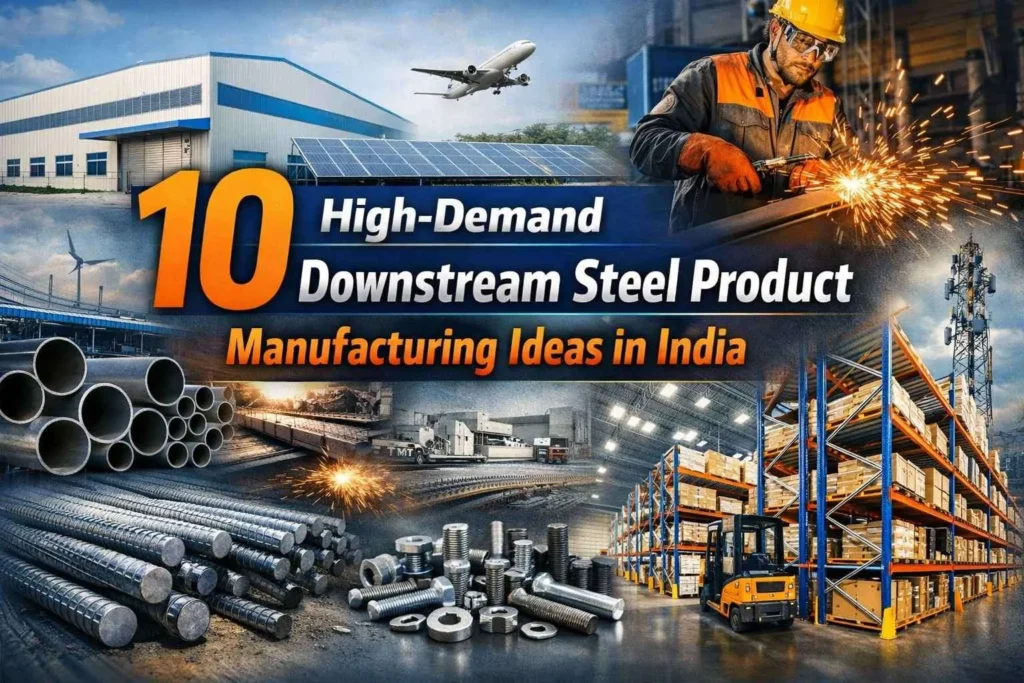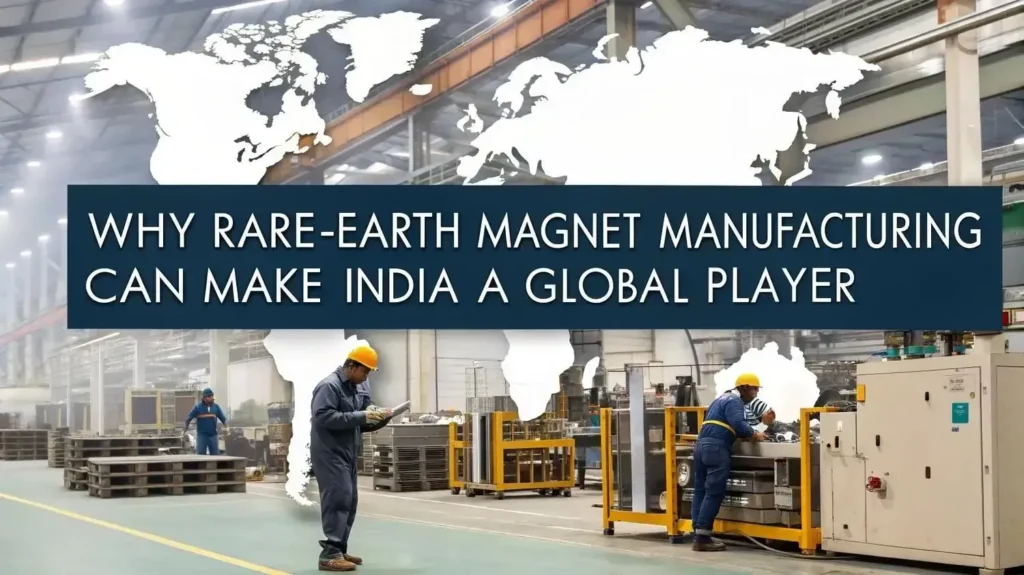The packaging industry has grown rapidly in recent years due to rising demands across agriculture, chemicals, construction, and logistics sectors. One such high-demand product is HDPE Jumbo Bags—also known as FIBCs (Flexible Intermediate Bulk Containers). These large, durable bags are primarily used to transport and store bulk materials like grains, chemicals, sand, fertilizers, and plastics. With the increasing shift towards cost-effective and reusable packaging solutions, HDPE Jumbo Bags Manufacturing presents a lucrative opportunity for entrepreneurs and investors alike.
Understanding HDPE Jumbo Bags Manufacturing
HDPE (High-Density Polyethylene) Jumbo Bags are strong, lightweight, and versatile containers designed for transporting heavy bulk items ranging from 500 kg to 2000 kg. The manufacturing process involves several stages, from raw material procurement and extrusion to weaving, cutting, stitching, and finishing. These bags are preferred globally for their cost-efficiency, chemical resistance, and eco-friendliness.
To start an HDPE Jumbo Bags Manufacturing business, one must understand the industry requirements, necessary machinery, quality standards, and market scope. The process requires technical know-how, regulatory compliance, and access to raw materials and skilled labor.
Market Potential of HDPE Jumbo Bags
The global FIBC market is projected to grow significantly due to increasing exports and logistics activities. Industries such as agriculture, cement, food processing, and petrochemicals heavily rely on HDPE Jumbo Bags for packaging and transport. Moreover, environmental concerns are pushing companies to opt for recyclable and reusable packaging options, adding further momentum to HDPE Jumbo Bags Manufacturing.
India, being a hub for agriculture and industrial production, presents a favorable landscape for starting such a unit. Export potential to regions like the Middle East, Europe, and North America makes it an even more attractive venture.
Key Steps to Start HDPE Jumbo Bags Manufacturing
Here’s a step-by-step guide on how to establish an HDPE Jumbo Bags Manufacturing unit:
1. Business Plan & Market Research
Start with a detailed business plan outlining investment requirements, operational strategy, market analysis, production capacity, and revenue projections. Identify the local and international demand for HDPE Jumbo Bags, and define your niche—whether it’s agriculture-grade bags, UN-certified FIBCs, or customized containers.
2. Registration and Legal Compliance
Register your company as per local government norms (such as MSME, GST, Factory License, Pollution Control Board NOC, etc.). If you aim to export, obtain necessary certifications like ISO 9001, ISO 22000 (for food-grade), or UN Certification for hazardous material packaging.
3. Location and Infrastructure
Choose a location with easy access to raw materials, transportation, and utilities like electricity and water. A typical HDPE Jumbo Bags Manufacturing unit requires 10,000 to 20,000 sq. ft. for efficient operations, considering space for storage, manufacturing, and quality control labs.
4. Raw Materials Procurement
Primary raw materials include:
- HDPE/PP granules
- Masterbatches (color additives)
- UV stabilizers
- Threads and webbings
- LDPE liners (if needed)
It’s important to establish reliable sources for raw materials to ensure consistent production quality.
5. Machinery and Equipment
To set up a full-fledged HDPE Jumbo Bags Manufacturing unit, the following machinery is essential:
- Extrusion lines for tape yarn production
- Circular looms for weaving fabric
- Warping and winding machines
- Cutting and printing machines
- Webbing machines for belts and loops
- Sewing machines and finishing units
- Inspection tables and packing lines
Automated and semi-automated machinery options are available depending on your budget and scale.
6. Manpower and Skilled Workforce
Hire trained operators, quality control inspectors, and machine maintenance staff. Additionally, employ packaging personnel, logistics managers, and administrative staff for smooth operations. Training in safety and quality protocols is essential in HDPE Jumbo Bags Manufacturing.
7. Manufacturing Process
The typical production process includes:
- Extrusion: HDPE granules are melted and drawn into flat tapes (yarns).
- Weaving: These tapes are woven into circular or flat fabric using looms.
- Cutting & Printing: The woven fabric is cut into required sizes and printed if necessary.
- Webbing Production: Belt webbing and loops are created for lifting and structural strength.
- Stitching & Assembly: Bags are stitched, fitted with liners (if required), and reinforced with loops.
- Inspection & Packing: Final quality checks are conducted before packaging and dispatch.
Adhering to global standards and testing tensile strength, seam strength, and UV resistance is critical to ensure the product’s durability and acceptance in international markets.
8. Quality Control and Certifications
In HDPE Jumbo Bags Manufacturing, quality assurance is paramount. Bags should be tested for:
- Load-bearing capacity
- Seepage or leakage
- Material strength
- UV resistance (for outdoor storage)
- Electrostatic safety (for hazardous materials)
Certifications from BIS, ISO, and other bodies not only enhance credibility but are also often mandatory for exports.
9. Branding and Marketing
Build a strong brand identity by offering customized solutions, timely delivery, and reliable performance. Develop a professional website, attend trade fairs, and network with exporters and distributors. Offering biodegradable or recyclable variants can help tap into environmentally conscious clientele.
10. Cost Analysis and ROI
The initial investment for a mid-sized HDPE Jumbo Bags Manufacturing unit can range from ?1.5 crore to ?4 crore depending on automation and capacity. Operating costs include raw material, labor, electricity, maintenance, and logistics.
With efficient production and consistent orders, manufacturers can expect to achieve break-even within 2-3 years. Return on Investment (ROI) improves with scalability and consistent export contracts.
Challenges in HDPE Jumbo Bags Manufacturing
Despite its promise, the business involves certain challenges:
- Fluctuating raw material prices due to petroleum dependency
- Maintaining consistent quality at scale
- Complying with evolving international packaging norms
- Establishing credibility in a competitive export market
Proper planning, quality focus, and marketing can help overcome these hurdles effectively.
Sustainable Practices in HDPE Jumbo Bags Manufacturing
Sustainability has become a key driver in modern manufacturing. Implement the following eco-friendly practices:
- Use recycled HDPE wherever possible without compromising quality
- Offer reusable bags with higher durability
- Set up in-house waste recycling units
- Minimize water and energy consumption through automation and reuse
Adopting green practices not only lowers costs but also attracts environmentally conscious clients.
Future Scope of HDPE Jumbo Bags Manufacturing
The future of HDPE Jumbo Bags Manufacturing looks promising with innovations in design, enhanced load capacities, and digitized supply chains. Smart packaging features such as QR-coded labels, tamper-evident seals, and GPS tracking are likely to find space in FIBC manufacturing. Government policies promoting “Make in India” and packaging exports further boost the growth prospects.
With rising demand in mining, pharmaceuticals, chemicals, and agriculture, businesses that invest in quality and sustainability stand to benefit the most.
Conclusion
HDPE Jumbo Bags Manufacturing is a high-potential business with growing demand across various industries and international markets. With the right mix of planning, investment, quality control, and market strategy, entrepreneurs can establish a profitable and scalable business. As industries move towards more sustainable, cost-effective packaging solutions, HDPE Jumbo Bags will continue to play a pivotal role—making now an ideal time to enter the market.
By focusing on innovation, automation, and quality, your HDPE Jumbo Bags Manufacturing unit can not only serve domestic needs but also contribute significantly to global supply chains.
Visit the page Select and Choose the Right Business Startup for You for sorting out the questions arising in your mind before starting any business and know which start-up you can plan. We, at NPCS, endeavor to make business selection a simple and convenient step for any entrepreneur/startup. Our expert team, by capitalizing on its dexterity and decade’s long experience in the field, has created a list of profitable ventures for entrepreneurs who wish to diversify or venture. The list so mentioned is updated regularly to give you a regular dose of new emerging opportunities.




